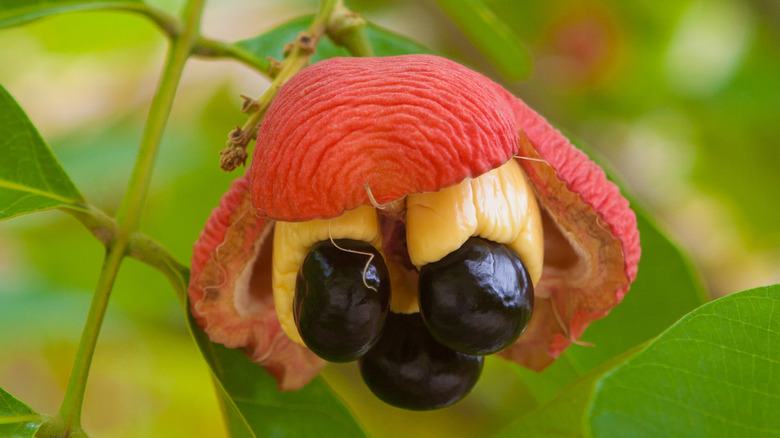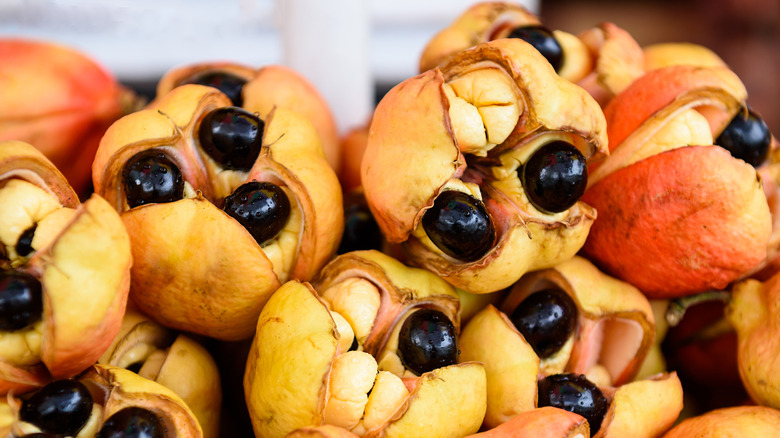The Reason Raw Ackee Is Banned In The U.S.
What looks like a nut, tastes like a starch, and is classified as a tropical fruit? If you guessed ackee, you're correct. If you guessed anything else, well...Maybe hit the books. Ackee is popular in the Caribbean, particularly Jamaica, where it's considered the national fruit.
According to The Daily Meal, ackee bursts open when ripe. This reveals the fleshy sections within (similar to an orange), which can be used in cooking. A Jamaican favorite, for example, is ackee and saltfish. This delicious breakfast dish combines ripened ackee with cod, peppers, scallions, and all sorts of other greens (via Serious Eats).
But here's the thing: if you didn't guess ackee because you had never heard of it, don't feel too badly about it. Ackee is largely banned in the U.S., at least in its raw or unripened form. This might seem strange, but there's actually a very good reason for the ban.
Ackee isn't as innocent a fruit as it looks
Despite its harmless appearance, ackee in its unripe form can be extremely dangerous. The unripe ackee contains high levels of the toxin hypoglycin A, which, according to MDLinx, "disrupts blood glucose production and increases the risk of hypoglycemia."
Hypoglycemia, or low blood sugar, can lead to shakiness, coma, and even death if untreated (via the American Diabetes Association). In the specific case of ackee-related illness, it is also known as the "Jamaican vomiting sickness." Ackee that hasn't ripened yet or is improperly prepared can be deadly, hence the U.S. ban on ackee imports.
However, Americans can still get their hands on some ackee fruit. Because the fruit is safe once fully ripe (when it bursts open naturally), the U.S. allows select manufacturers to sell frozen and canned ackee, according to Mental Floss. Consumed safely, ackee is a great source of electrolytes, vitamins, and minerals, and contains no cholesterol or saturated fats. It's a shame ackee might just poison you!

